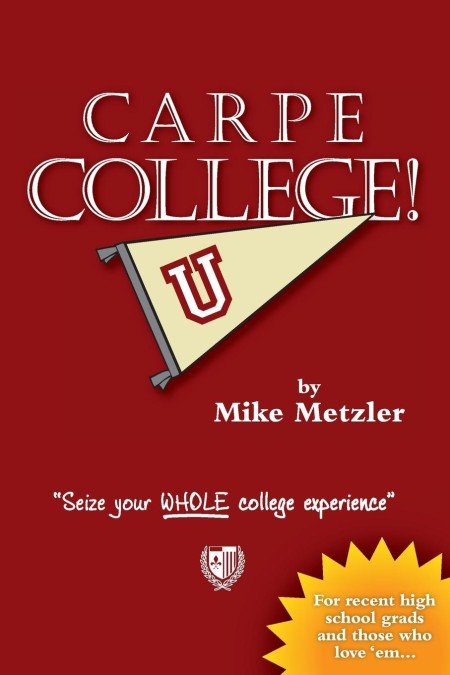U of No Clue II: Graduation
When the school year started—my son’s senior year—I had vowed to teach him everything I thought he needed to know to go off to college on his own. This included practical life skills like time management and laundry. Probably I did this because I was missing some life skills before I went to college, like ironing. (To this day, we don’t even own an ironing board.)
I wrote about the start of the year in the September issue of Rochester Magazine. I had a vision that the following months would be a course in Momma’s wisdom—a year-long graduation speech extolling the virtues of finding yourself, working hard, and making a difference, along with how to wash whites in hot water.
Instead, my dulcet-toned wisdom has given way to exasperation and a lot of yelling. They say your children do this to make it easier to separate. So wearing his pajamas to school, leaving his clothes all over the floor, staying out too late, and having terrible eating habits are all subconscious ways of saying, “Bye.”
This, after searching high and low for the right college. We visited campuses. We interviewed with alumni. We fought over the application process.
And then the letters started to roll in. Our search transformed into a narrowing down. These days, kids have the benefit of a common application. They can hit “send” and instantly apply to as many schools as they want. In our case, it was 13—a lot to keep track of.
And a lot of trips so we could narrow down the list as we worked to decide which one would be the right place for our boy to become a contributing member of society (read: get a job).
The dog-and-pony shows put on by colleges are a mind-boggling array of college students on steroids and dorm rooms that I thought only exist in Bed, Bath & Beyond catalogs. Even the food tasted good.
We met kids studying to become scientists and astronauts while somehow leading fraternities, playing sports, and singing in the acapella group. I sat there wondering how my kid was going to find the bathroom, let alone accomplish all of that in four years.
When it was all over, we let our child—the kid who sleeps with one sock every night and who can’t put a piece of clothing into the hamper on his own— make the most adult decision of his life.
Then I really started to worry. Not just how to pay for it, but how he’d fare on his own. How would he find a community that he wants to be a part of, what will he major in, and, of course, how will he stay interested in studying with all those cool tailgate parties happening during football season?
Mostly, there was so much advice I wanted to give to him about the college experience so that he wouldn’t have to make the same mistakes I did. But I know he wouldn’t listen because, as a Pavlovian response, he automatically tunes out my voice.
Then I found Mike Metzler. Mike, an instructor at RIT who works with freshmen on campus, has written a fantastic book called Carpe College which gives all the advice I want to give but I know my son won’t listen to it. Everything from living arrangements to campus safety and what to do if you over-imbibe.
But he also shares words of wisdom: know thyself (be reflective); assume no one else cares (you are on your own), and own it (take responsibility). His advice is honest, realistic, and hopeful all at the same time. And it comes from years of experience teaching high school and college kids.
Mike wrote the book because friends and neighbors were calling him to speak to their college-bound kids. He says the best way to get your kids to listen is to get someone else to talk to them, and he realized there was a need for a book that would compile all that advice.
But there’s a deeper, soulful reason behind why he wrote it—one that will do for parents what the book does for their children. Metzler is the father of two children: Luke, a student at the University of Rochester, and Hannah, who was a junior at Fairport High School. He started writing the book at the same time that Hannah, then 16, was diagnosed with a brain tumor.
She encouraged him to keep writing. He says it was a helpful distraction during a terribly difficult time. But it also gave him a parallel path—a way to give something to all those kids he loved teaching while he gave his love to his daughter on her journey. Hannah passed away on March 27 of this year. She left behind a legacy that is remarkable for someone who was on this planet is such a short time. She was committed to making a difference in the lives of all of those around her. After one surgery, her brother—a member of the UR YellowJackets singing group—visited her in the hospital and said he was going to bring the group into her room to sing. Instead, she insisted they arrange a concert for all the kids at the hospital. From that performance, she organized the Crush Cancer fundraiser concert in 2013. This year, she asked that the second Crush Cancer concert go forward even as her health was failing. To honor her wishes, Crush Cancer carried on. It raised $30,000—less than a month after she had passed away.
During this time, Mike wrote, published, and started selling the book. Hannah will never go to college and figure out what she wants to be. But Mike’s book will help so many others do so.
Mike says that Hannah, in the end, was what she was supposed to be—a kind and generous person. She was the kind of kid who, if she saw someone sad in the hallway at school, would stop and offer a hug. She was the one who insisted that all the kids at the hospital enjoy the concert, and she encouraged her family to keep going.
As I spoke to Mike and wiped away my tears, I couldn’t help but ask him: If Hannah was already the person she was supposed to be, is college really necessary for everyone?
Mike defended the college experience passionately. “I absolutely think that college is a transformative experience. The time of college is about thinking and learning, but it’s also about exploration and socialization.” And that, according to Mike, “can’t help but be transformative.”
Mike realizes it will be hard to go back to campus in the fall and see students all around him who look like Hannah. But he says her legacy of generosity and kindness will get him through.
Mike has no idea how meeting him and reading his book has transformed me. Now, when I look at my son and start to yell, I stop myself and remember: I need to enjoy him. When I get worried about what will happen when he leaves, I know he’ll find his way. I realize now I have to let it all go. He’s either going to sink or swim on his own, and that’s why you send your kid to college—to learn how to balance it all and to learn how to fail, if necessary, in order to succeed eventually. I know that if we’ve done our job right, he’ll do fine out in the world. He’s a bright, empathetic, funny kid who is trying his best. What better foundation can we ask for as he goes to the college of his choice?
Now, more often than before, I find myself just looking at him and bursting into tears because—despite all the dirty laundry and exasperation—I’m going to miss having him in our house every day.
And now, when I start to cry that he’s leaving—darn it, I keep crying.
The Suburban Outlaw is a recovering lawyer who helps people around the world present with passion through her company ShermanEDGE: Explore, Dream, Grow & Excite. She lives in Pittsford. Read her Saturday column in The Democrat and Chronicle and at herrochester.com; or visit www. suburbanoutlaw.com

